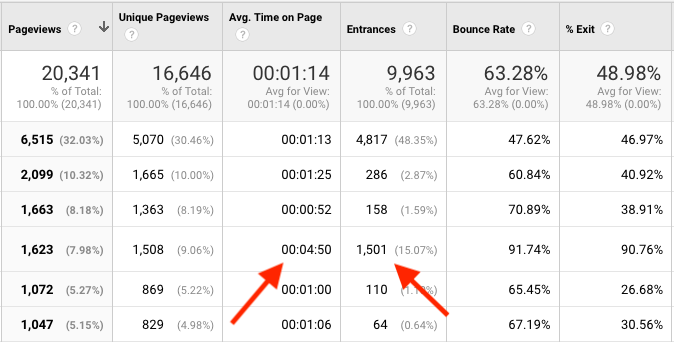As brand marketers, we can get so proficient at creating stuff people love that we sometimes mistake what’s great for what’s right.
Everyone Loves Quality Content, Especially Us Marketers
According to the 2017 Social Media Marketing Industry Report from the Social Media Examiner, 58% of marketers cite “original written content” as the most important type of content, even more than visual content like videos. (source: Social Media Examiner)
As brand marketers we put a lot of energy into how well something reads. Nearly every digital marketing article, e-book, and webinar released in the past 10 years has come with one guiding recommendation: make sure your content is high-quality.
After all, people like nice things—phones, clothes, food, music, broadcast. We’re willing to shop around and even pay a premium for higher quality versions of these things.
We see evidence of this in the world of online written content, too. Start looking for it, and you’ll see that good writing on the Web seems to be on the decline. In spite of this, or perhaps because of this, there are still audiences willing to pay extra for the kind of quality writing that used to be free. As a subscriber to the New York Times’ web content, I’ve rediscovered the joys of reading of in-depth reporting and writing that’s 99% error free.
But for all its virtue, there’s also a hidden danger in “making quality job one” in the content we produce. And it’s so obvious, you might be overlooking it right now.
Quality (By Itself) Can Make You Lose Sight of What Matters Even More
The quality of your content is important, but it’s not the chief factor in your digital marketing success. And, while we’re at it, it’s not even the quantity of content that will make or break a website’s success. The only thing that will help a brand’s content strategy succeed more than quality or quantity is relevance.
The only thing that will help brand content strategy succeed more than quality or quantity is relevance.
Any time we encounter below-average content, but still engage with it because it’s useful to us in that moment, we prove the power of relevance over quality.
Where strong writing (i.e. quality) may keep your visitors on a web page longer, relevance bookends that visit by bringing new traffic to your website to begin with, and leading to higher conversion rates later.
Does Quality Even Matter, Then?
Yes! We must hold to our high standards of quality content. That should be an ongoing endeavor for all of us.
But a narrow focus on high production value and good writing can pull our attention from relevance. So pursue excellence in your content, but know that it only matters if it reaches the right audience.
Self-Assess Your Content Relevance With These Questions
A popular article published by Search Engine Journal last year advised on how to write “worthwhile content,” and it led with a call to relevance. Number one on their checklist of 15 factors is an important, gritty question publishers should ask themselves: Are people looking for the things we’re writing about?
That’s a great place to start, even if the honest answer is difficult to accept.
Moving on from there, here are a few more questions to test the strength of your relevance game (specific to your website content):
- If I could personally show our website to one new person right now, who would that person be?
- What other content does she consume throughout the day?
- What is he doing when he thinks about the problem we’re trying to fix?
- More than anything else, what should our content make this person do?
- Does our content keep that goal front-and-center?
- If I was this person, would I want to browse more than a page or two into our brand’s website?
Then Look at the Evidence
Finally, put some time on the calendar to meet with your Digital Marketing Director and investigate where your existing content is already winning and losing.
- What pages of your site have the highest bounce rate?
- Which content generates the longest time-on-page?
- What deep, topic-specific content drove higher levels of site entrances?
- Working backwards from your site’s goal conversion (completion of a form, for example), what content views and engagement happened just before that point?
- If using paid search, how closely do your landing pages match search terms and the ad text/images being used?
- What articles and links get the highest clickthrough in your offsite content such as emails and social?

Remember One Thing
The problem with quality content is that it doesn’t automatically qualify as relevant content. As brand marketers, we can get so proficient at creating stuff people love that we sometimes mistake what’s great for what’s right.
Start by making your content laser-focused on something your audience craves. Then present it when and where they’re about to make a decision—marketing automation can do this for you.
Having solved the relevance problem first, you may discover that your quality content becomes more impactful and ROI-friendly.
